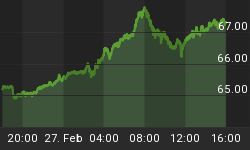Several readers sent emails prior to the Fed hike on December 16 that the stock market would collapse immediately following a rate hike.
I commented on that sentiment in Knowing the Unknowable; Reflections on the Fed Hike. Here's a snip.
"Epocalypse" Now
The first person, an economic blogger, tells me a global economic collapse of biblical proportion is coming. He labels the collapse an "epocalypse" and offered a guest-post article that I passed on.
I responded "No one knows the precise timing of a collapse. There might not even be one.
Stocks could do a slow decline like Japan for years."
You can start a countdown, because yesterday he pinged back "Check in with me at the end of the week."
Checking Back In
I gave "Epocalypse" more than the few days he asked. The end of the week would have been the 18th. It's now the 29th.
This is what I see.

Curiously, the market is right where the market closed on the day of the hike. Anyone who bought short-term CALLs or PUTs expecting high volatility lost money.
The rate hike was the most telegraphed Fed move in history. No one had any advantage in knowing the Fed would hike.
I can list up with more reasons than most as to why the markets are over-valued and pension plans extremely vulnerable. For example ...
- Stocks More Overvalued Now Than 2000 and 2007 No Matter How You Look at Things
- Bubble Debate; Equity Allocations vs. Shiller PE; Simple World
- Death Watch Illinois: Despite Massive Stock Market Rally, Illinois Pension Liabilities Go Up, and Up, and Up
- Apocalypse Illinois: IOUs Projected to Hit $10.5 Billion, $163 Billion Total Accumulated Liabilities
Nothing above is a timing indicator. And as we have seen, a rate hike is not a precise timing indicator either.
Had a serious decline started on the day of the Fed hike, "Epocalypse" would have been nothing more than lucky, but he likely would have thought he was a genius who "knew" something.
Can an "Epocalypse" start tomorrow?
Sure, why not? But it could also start a month from now or six months from now. We could also see a slow drift down for years like Japan. We could even see stocks do nothing for years while valuations catch up to smoothed earnings.
The one thing we do know is history suggests stocks are hugely over-valued. But I don't know when valuations matter. No one does.















